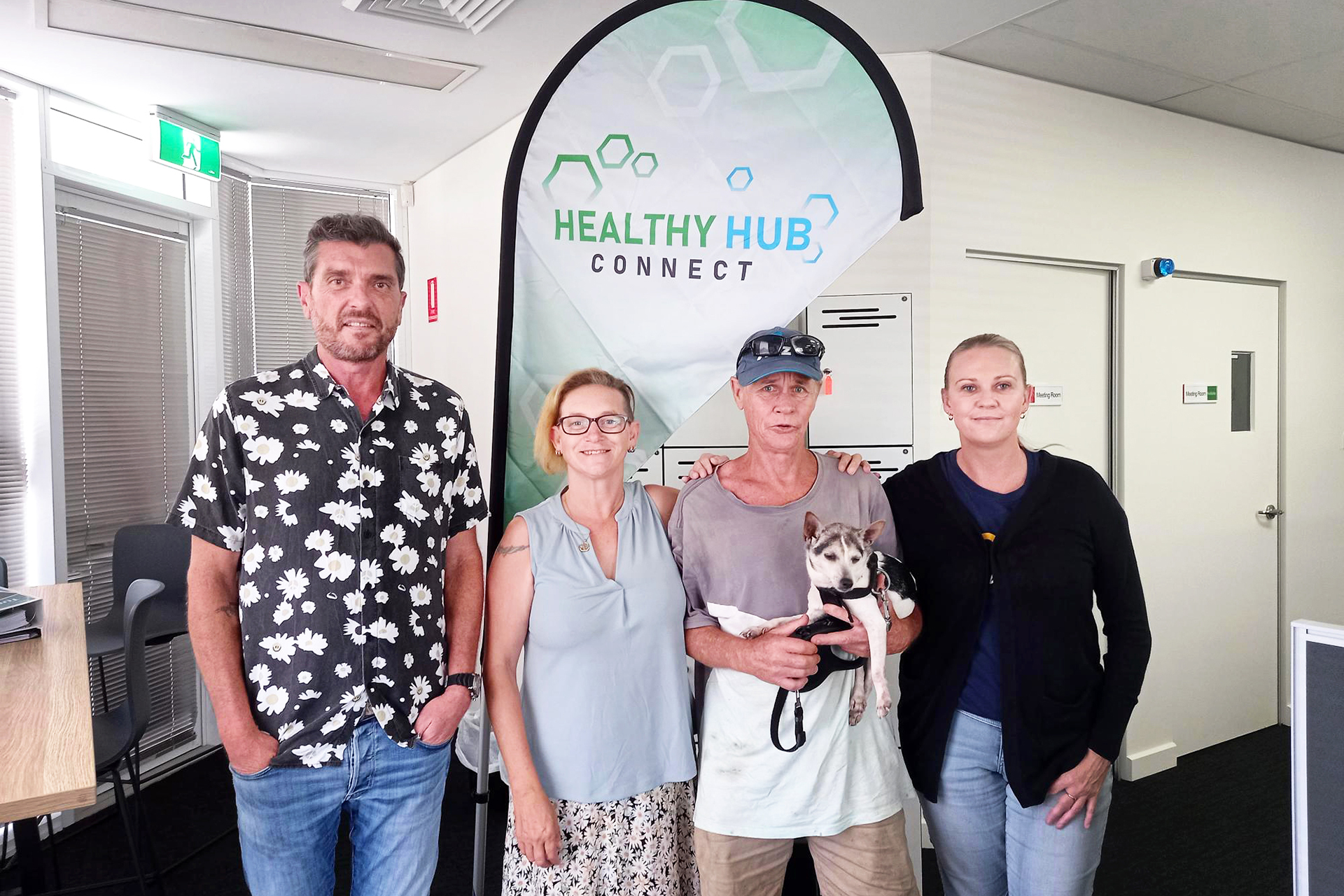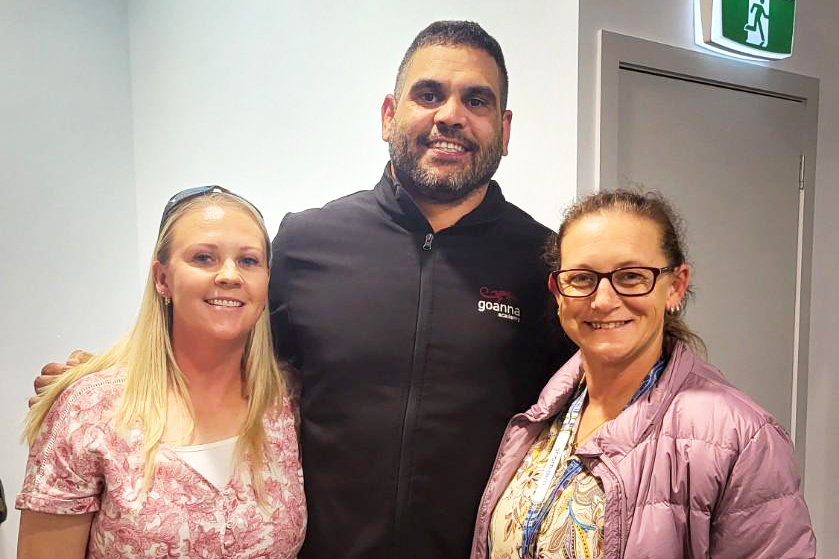“He’d slipped through the cracks, but we had noticed him,” recall Kylie Williams and Kym Watson, who are Suicide Prevention Peer Workers for the ‘Men’s Wellbeing Matters’ program. Had this older male participant not been ‘seen’ and supported by them, it could have been too late, given the trajectory he was on. “We find, a lot of the time, that the lack of social connectedness and loneliness is what drives a lot of the suicidal ideation.” These two Wellways workers aka Pocket and Rocket, one a former policewoman and the other a former chef, support men aged between 35 to 65 in the Mid-North Coast, NSW — a high–risk–of–suicide demographic, hidden in plain sight.
“We don’t want to lose any more men, or women, to suicide,” Kylie says. “But men are more likely to withhold how they feel and what they’re thinking.” Coupled with the stigma surrounding mental health challenges, this makes it difficult or almost impossible for them to ask for or even accept help. “We want men to reach out and realise that a lot of men have these kinds of thoughts at some time in their lives, and it’s normal to have these feelings,” Kym says. “The guy next to you could be going through the exact same thing, and you wouldn’t know it.”
Many men find themselves alone, perhaps after a family or partner break up, losing a job and the social interactions at the workplace, or not having any friendship support to lean on. The isolation and loneliness, with or without a trauma background, can lead to depression and anxiety. “Where it becomes a problem is when people have that much despair that they feel there’s no other choice [but to end things],” Kylie says.

Tom Apin (Men’s Wellbeing Program Manager), Kym Watson, Garry (Participant) and Kylie Williams

Kylie Williams, Greg Inglis (former NRL player) and Kym Watson
‘Men’s Wellbeing Matters’ is part of Healthy Hub Connect, a consortium of partners offering wrap-around services, all in one place. Led by EACH, it’s the largest primary health service in the North Coast of NSW — from Port Macquarie to Tweed. It comprises mental health workers including psychologists, mental health nurses, social workers, and peer workers. Funded by Healthy North Coast through the North Coast PHN program, partners include The Buttery, Ability Options, Health Voyage and Wellways.
The services play a crucial role in easing pressure on the health system by allowing people to get care in their local community. Locals can just drop in without a referral, and because all services are in the same office, they can be inter-referred, or connected quickly and easily with support — without having to repeat their stories to new service providers.
Referrals also come through Head to Health, GPs and community mental health services. Men can even refer themselves, as there are no barriers to support. Kylie and Kym may refer participants of Men’s Wellbeing Matters to both high and low intensity programs offered by our partners.
“It’s a totally new program and we’ve been running [Men’s Wellbeing Matters] since June [2023]. There was no service for men within this age bracket and area, and the statistics show they are prone to suicidal ideation,” says Kylie. “We understand that we are two females in the ‘Men’s Wellbeing Matters’ program. We haven’t come across any barriers except that we can’t integrate ourselves into men’s support groups and attend with our participants.” However, Kylie and Kym connect participants to these groups, help them overcome the anxiety of attending them, and build relationships with its facilitators.
Many participants have said that they’ve been ‘pinballed’ around by services and GPs in the past, resulting in them not getting very far in their wellbeing journeys. According to Kylie and Kym, the men they work with don’t understand and are intimidated by the clinical terms doctors and hospitals use. “They could be on medication or a mental health plan but not really understand how it all works or what they’ve been told,” Kym says. “A lot of them don’t know the system and how to navigate it. Therefore, it makes a real difference when they realise, they have us in their corner, advocating for them and to be their voice.”
“We have seen men at their lowest change dramatically. How they live, how they think and how they cope with emotions and stress,” Kym says. “One participant said, ‘Thank you for changing my life. I still have the same things going on, but I’m able to handle them in a different way. I understand myself more.”
Kylie and Kym both have lived experience of mental health challenges, including suicidal ideation. “I was in the police force for 14 years. I’ve lost a lot of friends to suicide in there and outside of it as well,” says Kylie. “We both have family members with mental health issues [that we care for],” Kym says. “I guess we just get it. We want men to feel comfortable and know it’s okay to reach out, no matter what, because there is no judgement from us.”
If you live in the Mid-North Coast of NSW, and would like to contact Men’s Wellbeing Matters, call Head to Health on 1800 595 212.
If you live in Australia and need to talk, call:
Lifeline 13 11 14
Suicide Call Back Service 1300 659 467
13 Yarn 13 92 76
If you are bereaved or impacted by suicide please call StandBy Support After Suicide (6am – 10pm, 7 days per week) on 13007 27 247.

